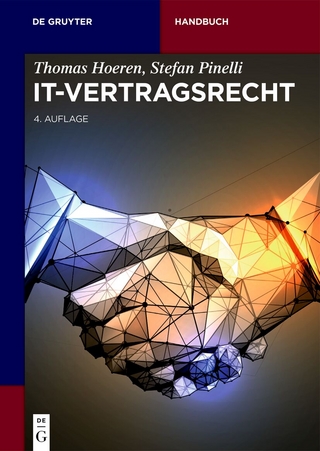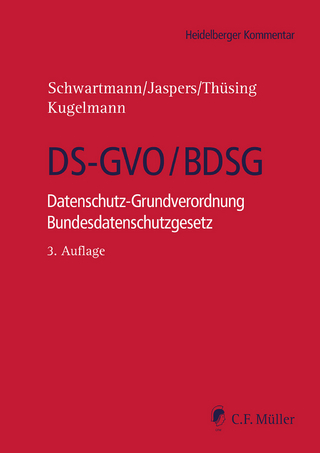
Information Law and Policy
Legal and Commercial Aspects of Valuable Information
Seiten
2020
Hart Publishing (Verlag)
978-1-84113-332-4 (ISBN)
Hart Publishing (Verlag)
978-1-84113-332-4 (ISBN)
- Titel wird leider nicht erscheinen
- Artikel merken
This book asks the question whether there is a developing field of information law in the global information age and,if so, what its contours and policy framework might look like. Because of the global nature of this question, a comparative/international perspective is taken throughout. In particular, the potential field of information law is distinguished from two associated fields of law: cyberlaw/Internet law, and intellectual property law. The author argues that these areas are related and, to some extent, overlapping with information law, but that in some important respects they should be considered as distinct legal fields with their own independent policy frameworks. Fundamental to the discussion is the important issue of the increasing propertization of valuable information in many different jurisdictions, and the tensions this creates for balancing the new information property rights against important competing interests in information.
These competing interests include personal privacy interests in relation to personal information, fair use / fair dealing interests in relation to commodified information (including important scientific, educational, and research uses), and cultural interests in relation to the commodification of culturally-specific works. Additionally, the book considers the relationship between information property rights and the public domain of information and ideas. Arguments about the need to preserve an intellectual common or public domain of information and ideas for societys use have been pervasive in modern intellectual property commentary. Thus, it is necessary to ask the question whether a new field of information law should be concerned primarily with preserving such a public domain as one of its underlying policy objectives, or whether the policy objectives of information law should focus more on balancing competing private interests in information, such as property, privacy, and access rights in relation to information.
These competing interests include personal privacy interests in relation to personal information, fair use / fair dealing interests in relation to commodified information (including important scientific, educational, and research uses), and cultural interests in relation to the commodification of culturally-specific works. Additionally, the book considers the relationship between information property rights and the public domain of information and ideas. Arguments about the need to preserve an intellectual common or public domain of information and ideas for societys use have been pervasive in modern intellectual property commentary. Thus, it is necessary to ask the question whether a new field of information law should be concerned primarily with preserving such a public domain as one of its underlying policy objectives, or whether the policy objectives of information law should focus more on balancing competing private interests in information, such as property, privacy, and access rights in relation to information.
Jacqueline Lipton is Associate Professor and Associate Director,Case School of Law, Case Western Reserve University, Ohio.
| Erscheint lt. Verlag | 1.2.2020 |
|---|---|
| Verlagsort | Oxford |
| Sprache | englisch |
| Maße | 156 x 234 mm |
| Gewicht | 783 g |
| Themenwelt | Recht / Steuern ► EU / Internationales Recht |
| Recht / Steuern ► Privatrecht / Bürgerliches Recht ► IT-Recht | |
| Recht / Steuern ► Wirtschaftsrecht ► Urheberrecht | |
| ISBN-10 | 1-84113-332-9 / 1841133329 |
| ISBN-13 | 978-1-84113-332-4 / 9781841133324 |
| Zustand | Neuware |
| Haben Sie eine Frage zum Produkt? |
Mehr entdecken
aus dem Bereich
aus dem Bereich
Telekommunikations- und Multimediarecht
Buch | Softcover (2024)
dtv Verlagsgesellschaft
27,90 €
Datenschutz-Grundverordnung Bundesdatenschutzgesetz
Buch | Hardcover (2024)
C.F. Müller (Verlag)
200,00 €


